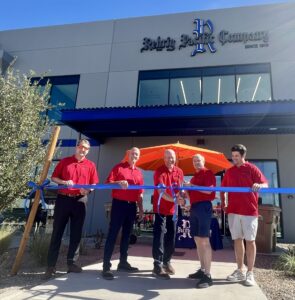Significant Infrastructure Boost for North Carolina’s Rural Areas
In a move set to enhance economic growth in North Carolina’s rural sectors, Governor Josh Stein revealed the approval of four substantial grant requests by the Rural Infrastructure Authority (RIA), totaling $1.89 million. These investments are anticipated to create 67 new jobs, 53 of which have already been announced, and are projected to stimulate over $15.5 million in private investments.
Governor Stein stated, “When we strengthen rural communities, we strengthen North Carolina.” He emphasized that these grants are crucial for maintaining the state’s business-friendly reputation by creating high-quality job opportunities in rural areas.
The RIA, which operates under the guidance of the North Carolina Department of Commerce’s rural economic development team, evaluates and sanctions funding applications from local authorities. The funds stem from various specialized grant and loan initiatives managed by the Rural Economic Development Division, led by Assistant Secretary for Rural Development Kenny Flowers. These grants facilitate several activities, including infrastructure enhancements, building renovations, expansions, demolitions, and site improvements.
According to N.C. Commerce Secretary Lee Lilley, “From the mountains to the coast and parts in between, North Carolina’s rural areas provide excellent opportunities for businesses to succeed.” He pointed out that the grants are a collaborative effort with local officials to invest in the economic progress of rural communities.
Building Reuse Program Supports Three Projects
The RIA endorsed three grant requests under the Building Reuse Program, specifically targeting vacant buildings:
Vacant Building Category
- Madison County: A $100,000 grant will assist in repurposing a 95,000-square-foot facility in Hot Springs for Advanced BioGas Systems, a renewable energy firm that specializes in landfill gas capture devices. The project is expected to generate 14 jobs and involves a private investment of $2,889,384.
- Randolph County: In Asheboro, a $230,000 grant will aid the conversion of a 14,700-square-foot building for use by Gillespie Precast, LLC. This manufacturer of custom precast concrete products aims to create 39 jobs and make an overall investment of $10,047,500, with 29 jobs and $5,144,500 linked to this grant.
- Vance County: A $200,000 grant will help transform an 83,000-square-foot building in Henderson for Syntec Precision Technology Corporation, marking its first U.S. location. The project forecasts the creation of 34 new jobs and an $8 million private investment, with 24 jobs and $7,556,193 tied to the grant.
The Building Reuse Program provides financial assistance to local governments for renovating vacant buildings, renovating or expanding existing businesses, and developing healthcare facilities, particularly in Tier 1 and Tier 2 counties, as well as rural census tracts in Tier 3 counties.
Industrial Development Fund Boost for Onslow County
Additionally, the RIA approved one grant request under the Industrial Development Fund – Utility Account program:
- Town of Swansboro (Onslow County): A $1,360,000 grant will aid in completing roads and water and sewer infrastructure for a 47-acre industrial park.
The Industrial Development Fund – Utility Account offers grants to the state’s 80 most economically challenged counties (Tier 1 and Tier 2) for publicly owned infrastructure projects likely to result in job creation. This fund is supported by the Job Development Investment Grant (JDIG) program, where a portion of JDIG awards is allocated to the Utility Account when companies locate or expand in Tier 2 or Tier 3 counties.
The N.C. Rural Infrastructure Authority not only approves funding requests but also formulates policies and sets priorities for grant and loan programs conducted by the Rural Economic Development team. The authority comprises 17 voting members appointed by the Governor, Speaker of the House, and Senate President Pro Tem, alongside the North Carolina Secretary of Commerce serving ex officio.
For further information, visit the Rural Economic Development Division’s webpage.
Read More Here











Be First to Comment